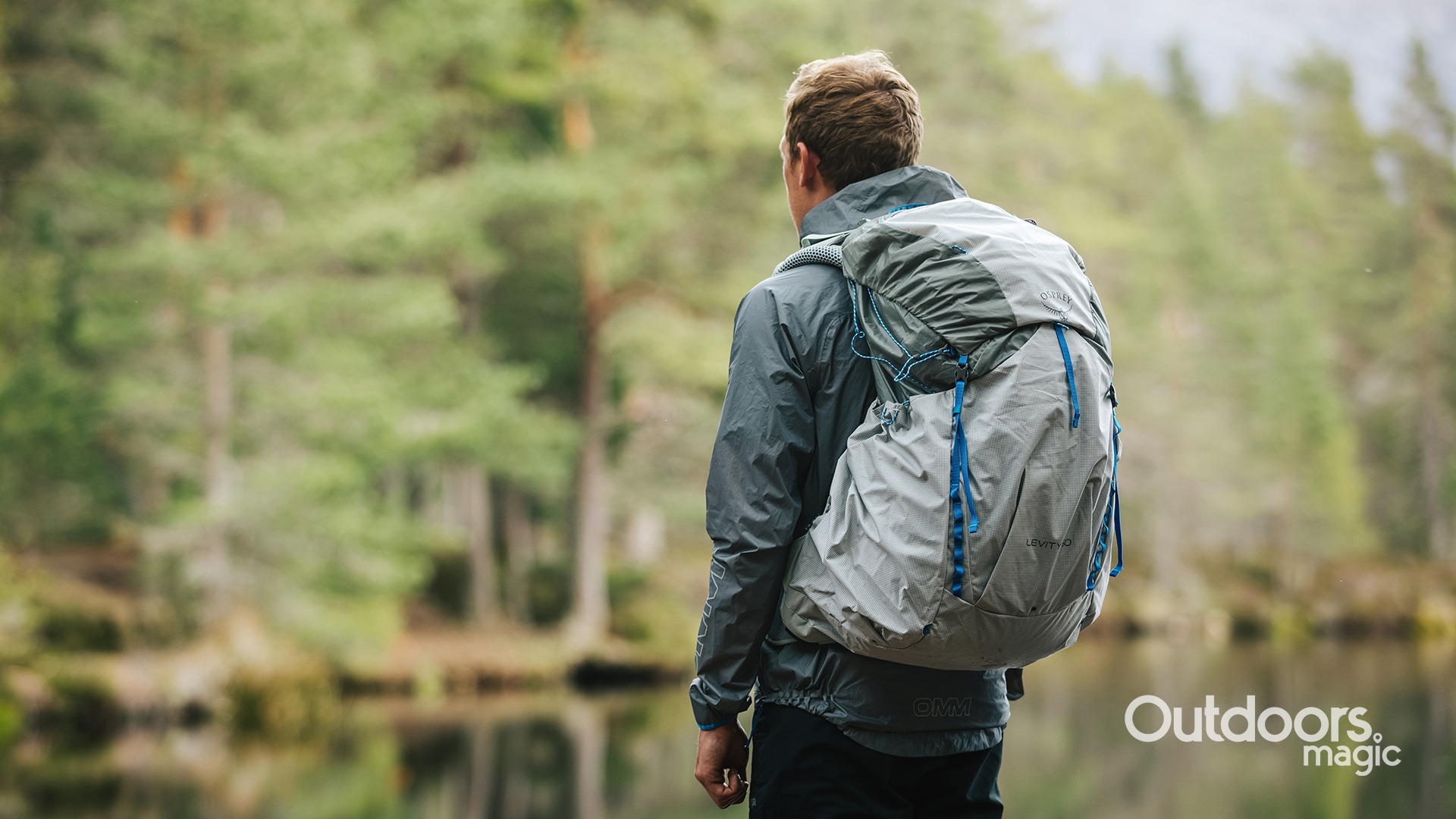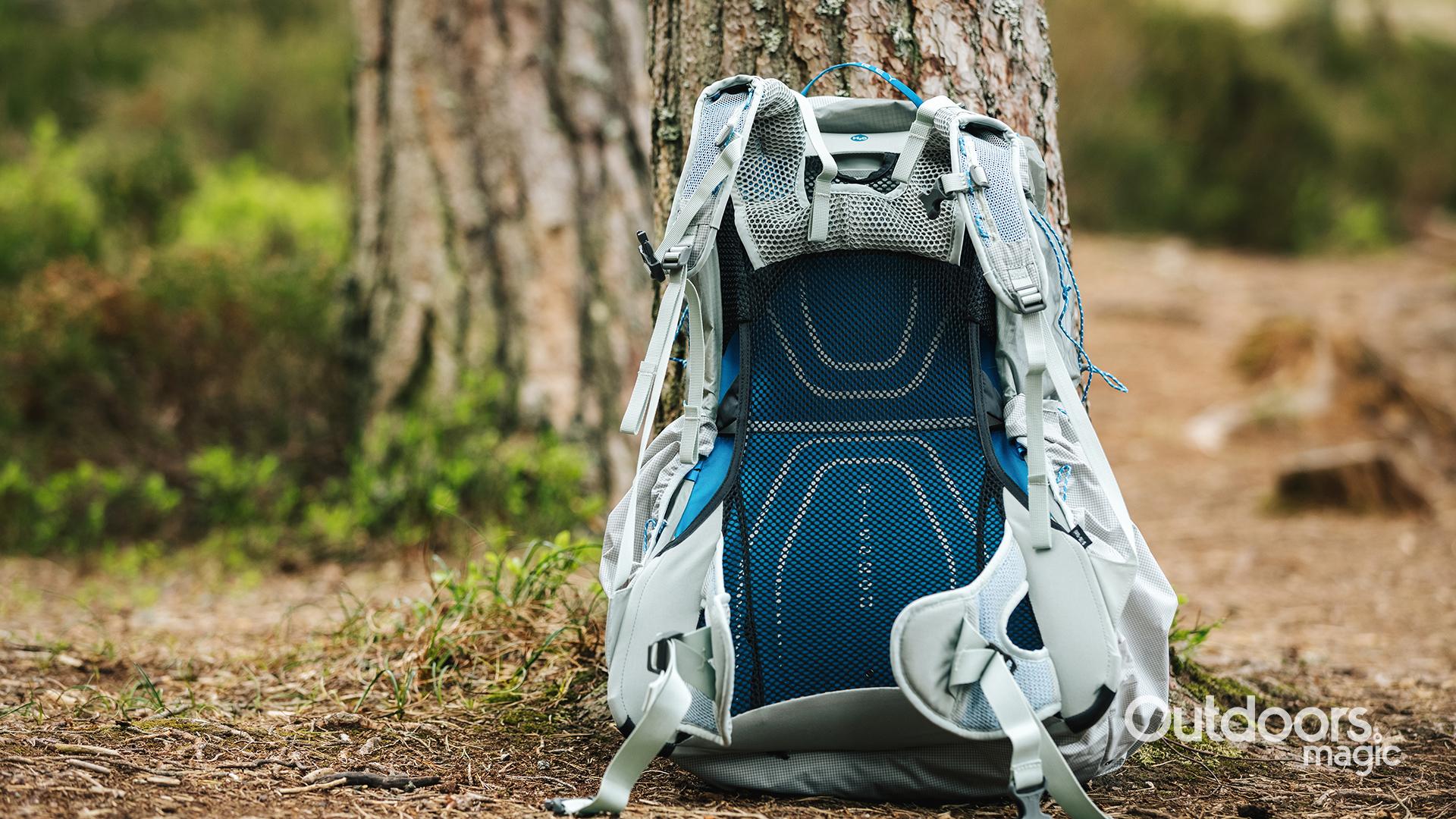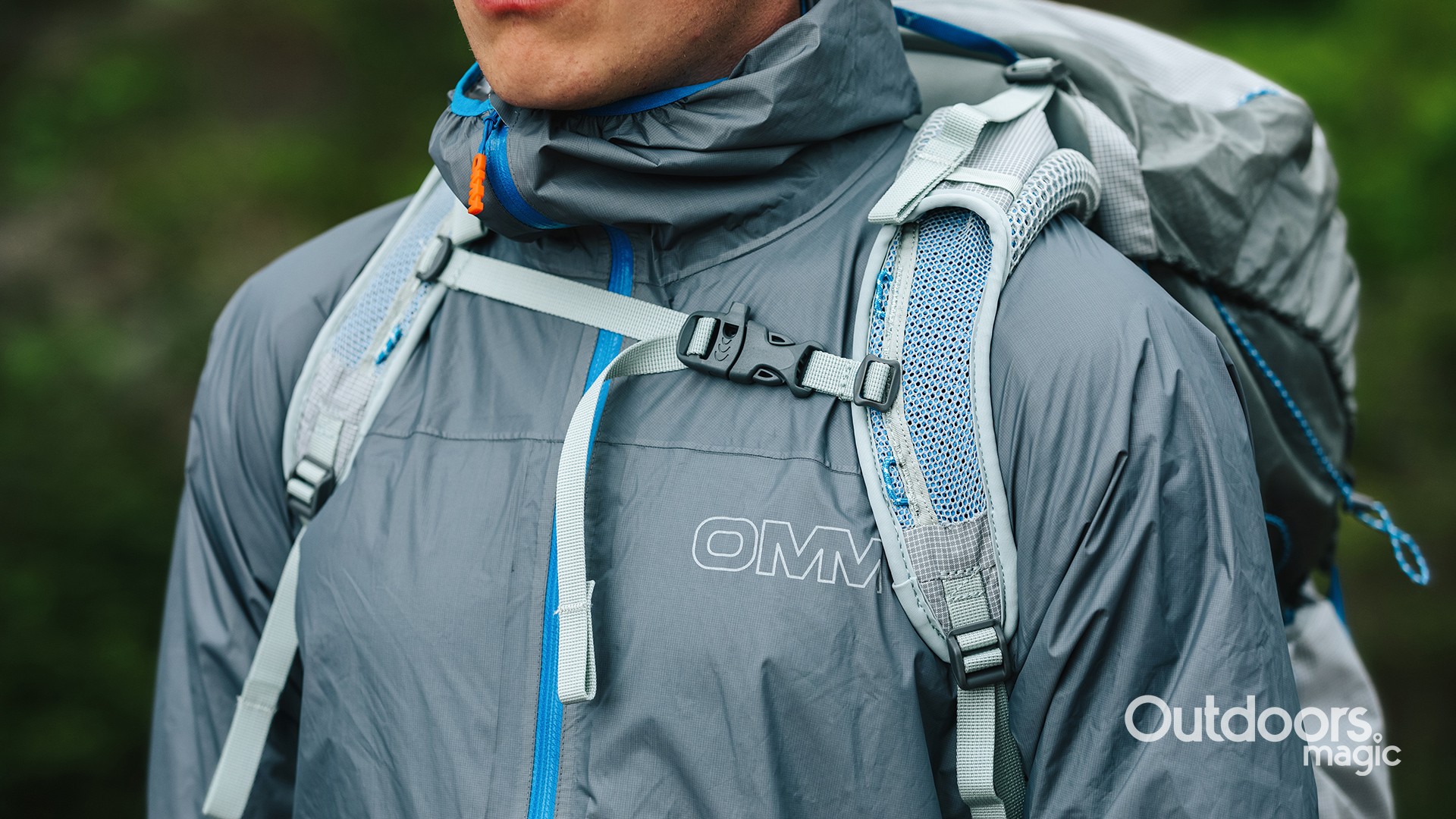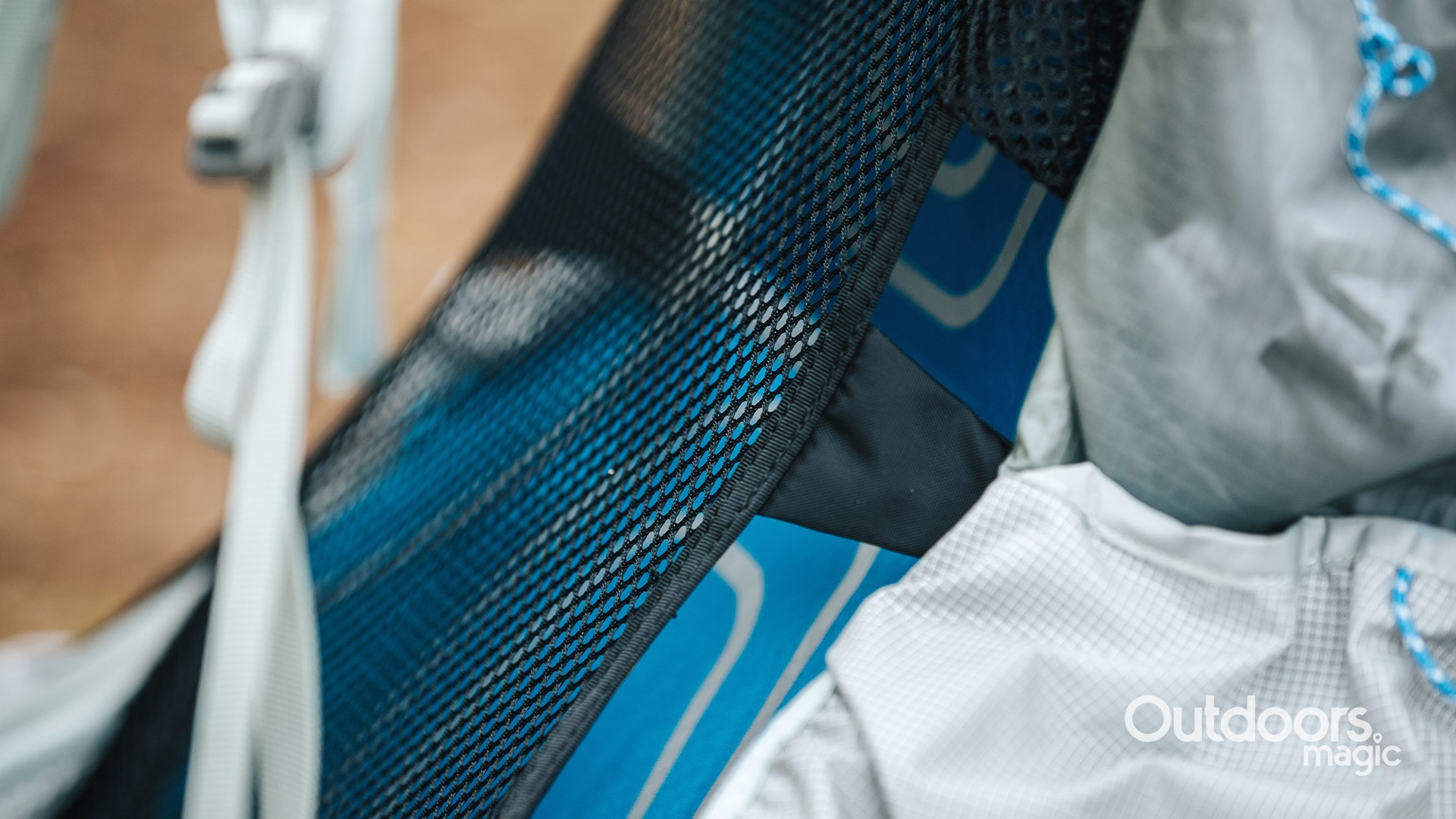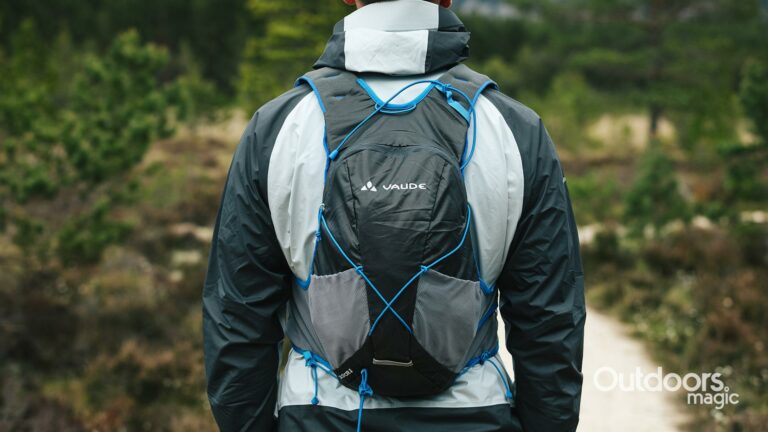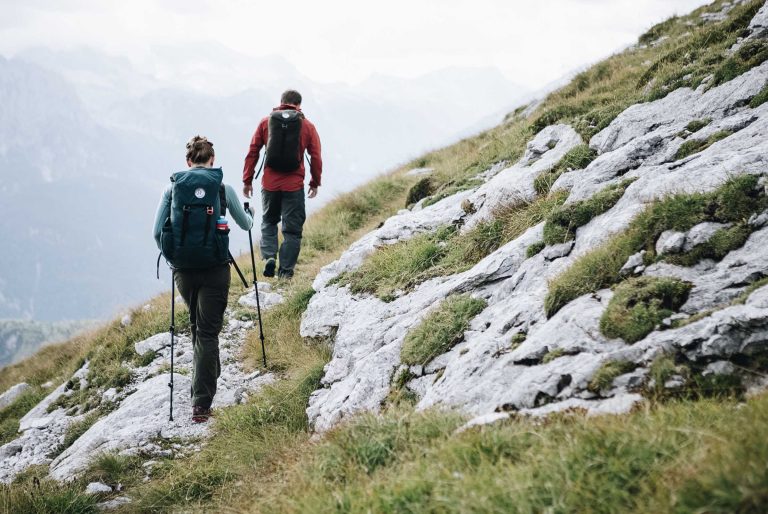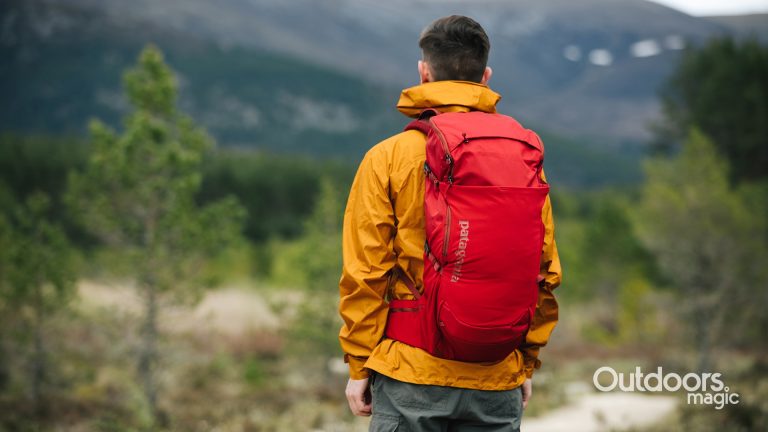When trying to cut back on the gram-count of your load for a backpacking trip, most of us will consider the weight of our tent, sleeping bag, sleeping mat or stove. But what can easily be overlooked is the weight of your pack itself.
Those who take their backpack weight seriously have, for plenty of years now, relied upon small-scale handmade-in-someone’s-garage style packs from the cottage gear making industry. It’s been a bit niche.
Enter the Osprey Levity (and Lumina for women), a 45-litre mass-produced pack that weighs a stonkingly light 830g. To put this into perspective the Osprey Stratos 36 weighs 1,490g despite being 9 litres smaller in capacity.
Yes, we’ve all seen ultralight packs before, but none that have a back system like this one. It features Osprey’s AirSpeed system, seen on many of their packs, where the bulk of it is suspended about 3 inches off your back by an aluminium frame and trampoline-like mesh to allow a high amount of ventilation and less sweat build up. We’ve found it works great on Osprey’s other packs and it certainly works on this too.
“We’ve all seen ultralight packs before, but none that have a back system like this…”
The pack itself is best-suited to carrying loads of under 12kg. It’s not the largest of load-bearing capacities, but then again, anyone who chooses an ultralight pack like this is probably going to be packed quite light anyway. To help you manage the weight there’s reasonable padding on the harness and a little on the hipbelt – it’s a minimal amount in comparison to most of Osprey’s other packs though.
A number of interesting materials have been utilised by Osprey to keep that overall weight so unbelievably light. At high abrasion points like the base there’s a 210-denier nylon reinforced with a 200-denier polyethylene, whereas the main material elsewhere is a 30-denier ripstop silnylon which is commonly seen on many ultralight tents.

